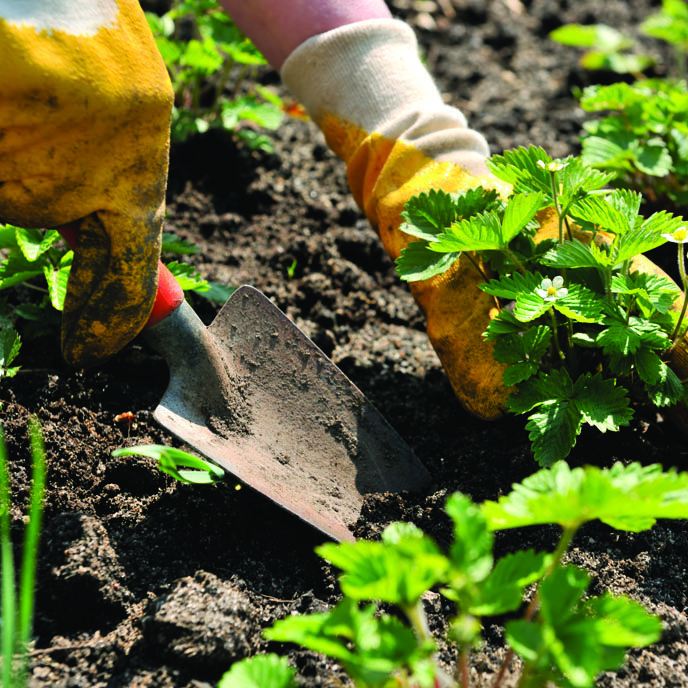Opening the Conveniences of Horticulture: A Detailed Take A Look At the Different Kinds and Their Influence On Health
Discovering the diverse benefits of gardening reveals a spectrum of techniques that significantly enhance specific health. From veggie and herb gardens to container and raised bed arrangements, each type offers distinctive benefits that prolong beyond plain farming. These activities not just foster physical wellness with active engagement but additionally add to psychological wellness by minimizing tension and encouraging mindfulness. As we check out these varied gardening approaches, it comes to be obvious that their effect can resonate on individual, social, and environmental degrees, prompting a closer look at just how these connections create a cohesive story of alternative health.
Kinds Of Gardening

Blossom horticulture, another preferred classification, highlights the visual charm of cultivated blossoms. This type can enhance landscapes and advertise biodiversity by attracting advantageous pollinators. Similarly, natural herb horticulture entails growing fragrant and culinary plants, adding both to cooking and all-natural treatments.
Container gardening deals versatility, enabling individuals with limited area to take part in horticulture by using pots and planters. This technique is particularly prominent in urban setups. Raised bed gardening, on the various other hand, involves creating elevated plots that boost soil drain and ease of access, making it easier for garden enthusiasts to handle their plants.
Lastly, neighborhood horticulture promotes cooperation among individuals in common rooms, advertising social communication and collective obligation. Each sort of gardening serves distinctive objectives and accommodates different choices, making horticulture a versatile activity that can be tailored to private demands and environments.
Mental Health And Wellness Advantages
Taking part in numerous sorts of gardening not only generates concrete incentives such as fresh produce and gorgeous flowers however likewise uses substantial mental health benefits. Study suggests that gardening can be a powerful tool for reducing stress, anxiety, and clinical depression. The act of often tending to plants and cultivating a yard promotes a feeling of objective and success, which can boost total psychological health.
Moreover, gardening encourages mindfulness, as it requires people to concentrate on today minute, whether it be growing seeds or supporting growth. This mindfulness method can result in decreased rumination and improved mood security. The direct exposure to all-natural atmospheres during gardening has actually additionally been connected to improved cognitive working and decreased sensations of exhaustion.
Social interaction plays a critical duty in mental health, and community horticulture efforts supply opportunities for individuals to attach with others, promoting a sense of belonging. The shared experience of horticulture can cultivate friendships and assistance networks, additionally reinforcing psychological strength.
Physical Wellness Benefits
Lots of individuals may not recognize that gardening likewise gives substantial physical health and wellness advantages. Taking part in horticulture tasks requires a series of physical activities, including flexing, training, excavating, and planting, which jointly add to improved strength, versatility, and endurance. These activities can boost cardiovascular health by promoting a raised heart price, therefore decreasing the danger of heart problem.
In addition, gardening can serve as a moderate-intensity exercise, aiding people achieve recommended physical activity degrees. Researches show that regular participation in gardening can shed considerable calories-- this article around 200-400 calories per hour, relying on the strength of the jobs executed. Such calorie expense is advantageous for weight administration and general metabolic health and wellness.
Furthermore, exposure to sunlight during horticulture can facilitate the synthesis of vitamin D, which plays a necessary duty in preserving bone wellness and sustaining immune feature. Additionally, the act of horticulture frequently entails collaborating with soil, which has been linked to possible mental and physical health benefits as a result of the visibility of valuable microbes. Gardening.
Social Links With Gardening
The public aspects of gardening foster purposeful social links among people. Neighborhood gardens, specifically, offer as dynamic hubs where individuals from diverse histories come with each other, cultivating not just plants yet likewise relationships. These common areas encourage cooperation, enabling individuals to trade understanding, skills, and sources, therefore improving their gardening experience and fostering a sense of belonging.
Engagement in horticulture activities typically brings about the development of relationships and assistance networks. Individuals often unify for typical goals, such as growing periods, harvest events, or educational workshops, which reinforce social connections and develop a sense of community. Such interactions can minimize sensations of seclusion and improve psychological wellness, as individuals locate companionship and camaraderie in shared undertakings.

Ecological Influence of Gardening
Gardening considerably contributes to ecological sustainability in multiple means. Home yards give crucial habitats for various species, consisting of pollinators such as bees and butterflies, which are vital for environment health and wellness.

Moreover, yards play a vital role in water preservation. Well-planned landscapes, consisting of indigenous plants and xeriscaping, reduce water use and avoid runoff, consequently safeguarding neighborhood rivers from contamination.
Conclusion

Finally, horticulture works as a multifaceted task that enhances wellness throughout various domain names. The varied kinds of horticulture-- consisting of vegetable, flower, natural herb, container, and raised bed-- contribute to psychological and physical wellness, foster social links, and advertise environmental sustainability. By engaging in horticulture techniques, individuals can experience improved lifestyle while additionally supporting area best site bonds and ecological health and wellness. Inevitably, the all natural benefits of gardening highlight its value as an important aspect in boosting total health.